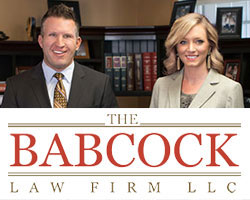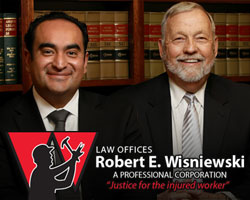If you run a law firm—or any other kind of small business for that matter—you’ve surely heard plenty of SEO pitches from a wide range of consultants. Everyone, it seems, has a different theory. As a business owner, you need hard facts on which to base your marketing spending. Those in the specific area of personal injury law marketing are in luck because a terrific, comprehensive study was recently released.
The study examined over 112,000 personal injury law firm websites and developed clear findings on what works for getting your website noticed online.
There are some recommendations that are clearly important—such as having an SSL certificate—that you can turn over to your developer if action is required.
What stood out the most, though, was 3 key areas that constitute low-hanging fruit—any law firm willing to put in a modest amount of time can take these actions and it doesn’t require a tech genius to do them.
1. Strengthen your directory presence
It was no surprise that legal directories were the most valuable source of online exposure. Places like Avvo, Justia, SuperLawyers and Findlaw have tremendous SEO leverage and being a part of these directories is a must.
But getting the most from your directory presence is more than just throwing up some basic information on a profile. These directories provide attorneys with the opportunity to really showcase themselves.
Take full advantage of every segment of the profile. Make sure you have a sharp picture. When you get to the section about your case history, take some time and put at least 10 cases in there. List any awards, any committees you serve on, any public speaking appearances and any articles written.
2. Meta-data precision matters
Having a proper title and description for each individual page of your website that search engines can pull is absolutely essential. So is the precise use of keywords. Do some research to find out what keyword will provide the best traffic, while still accurately describing the contents of your page. Make sure that keyword is used in the H1, the meta-title, the meta-description and within the first 100 words of content. A perfect match from keyword to these facets of the page brings higher results.
3. 3,000: the magic number
The study of individual pages within the website showed that up to 3,000 words, a page’s ranking would improve with each additional bit of content. Over and above 3K, there was no additional impact. That tells you something about the audience.
In today’s online world, 3,000 words is a substantial amount of content. The results of the study suggest that people who look for personal injury content are ready for something they can sink their teeth into. Give them what they’re looking for. People ready to read something are more likely to pick up the phone and call.
We know that in a busy attorney’s day, the notion of submitting a profile to a directory, writing meta-data or putting together an article can seem superfluous. The data suggests that it’s not. The work can be time-intensive for a brief period, but the rewards of good, qualified website traffic will roll on for years afterward.






